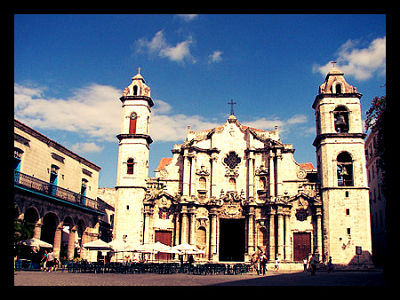Church and State: How Catholics are Reforming Cuba

Last Monday, the Brookings Institute hosted a panel of policy analysts and religious leaders to discuss recent changes in Cuba and, specifically, the role of the Catholic Church in Cuban reform.
Ted Piccone, a Brookings Senior Fellow, spoke with praise about the Church’s dynamic role at both the governmental and local levels in promoting dialogue about Cuba’s future. He also introduced Orlando Marquez, the senior editor of a major publication by the Archdiocese of Havana, who spoke about its increasing role in attacking poverty and mediating policy reform.
According to Marquez, the Cuban Church has a two-pronged approach. First, it is working locally to improve media access, establish public education, and grow businesses. Toward those ends, churches across Cuba have started publishing global news, forming partnerships to make educational programs available at every academic level, and working across sectors to offer enterprise development for Cuba’s farmers and entrepreneurs.
Second, the Church is engaging in dialogue with the government. In 2011, the conference of Cuban bishops negotiated the release of 75 political prisoners, a hard-won victory that garnered much international attention. They also urged the government to lift its crushing business regulations and tax policies on behalf of the many struggling businesspeople in their church provinces. Marquez says their impact was extraordinary.
“For the first time in about 50 years, the church has been recognized as a valid internal interlocutor,” he said. “This is new. This is very new.”
Marquez affirms that the influence of the Church as an interlocutor is key to continuing reform. The struggle for justice in Cuba, he says, is not about a battle between the ideologies of socialism and capitalism. Rather, it is a battle for the dignity of the human person, which is at the center of the Church’s ideology.
Tom Quigley, the former advisor on Latin America to the U.S. Conference of Catholic Bishops, expresses similar optimism about Cuba’s future and the Church’s role in it.
“The Church in Cuba, more than any other entity, is deeply serious about reconciliation between all sectors of the Cuban family,” he said at the Brookings panel. “It hasn’t been easy—not once over these past six decades—but there have been more advances than backward moves.”
– John Mahon
Sources: Brookings, Christian Post
Photo: Translating Cuba
